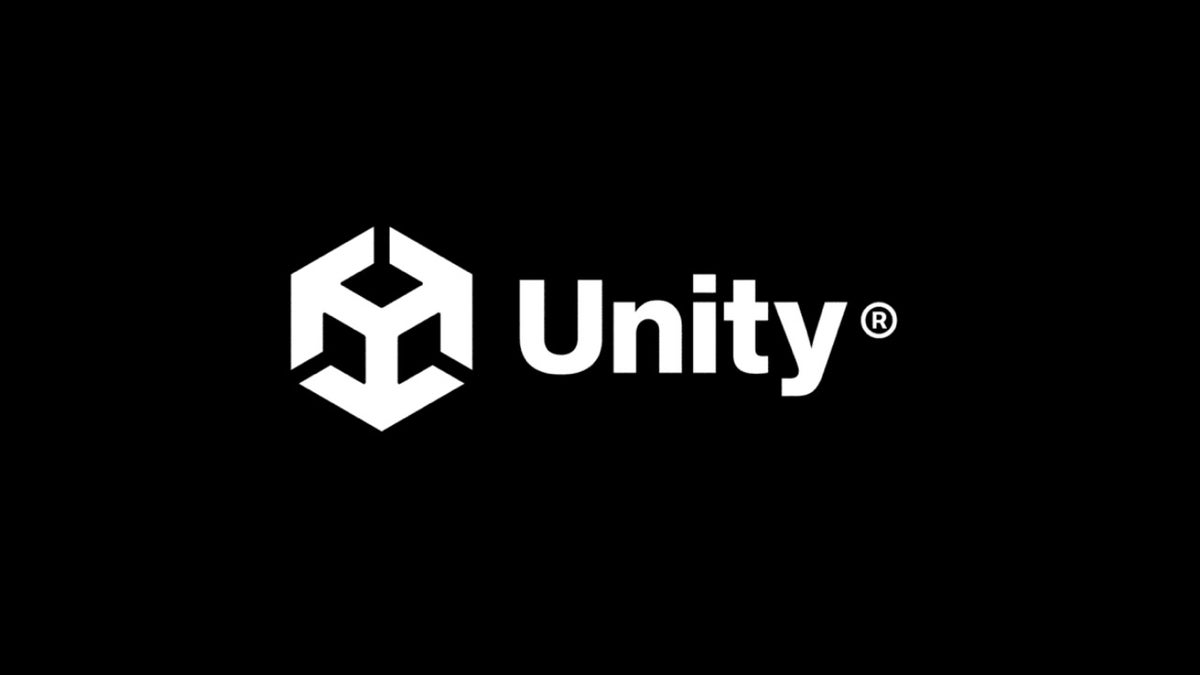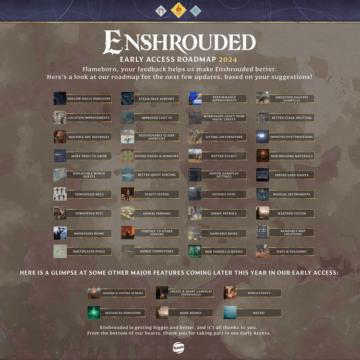
Unity has announced dramatic changes to its Unity Engine business model which will see it introduce a monthly fee per new game install beginning on 1st January next year – a move that has drawn considerable criticism from the development community.
Unity – the engine behind countless acclaimed games including Tunic, Cuphead, Hollow Knight, Citizen Sleeper, RimWorld, Outer Wilds, Fall Guys, Ori and the Blind Forest, and Cities: Skylines – was previously licenced to developers using a royalty free model built around subscription tiers. Anyone whose revenue or funding was less than $100k over the course of the year (and who didn’t want access to features such as the ability to remove the Unity splash screen) could stick to the free Unity Personal licence, while a Unity Plus subscription was required up to $200k in revenue, and a Unity Pro or above subscription was needed for more.
As of 1st January, 2024, however, developers will be expected to pay an additional monthly Unity Runtime Fee per new game install – seemingly including re-installs and installs across multiple devices – on top of their existing licence subscription, with those fees kicking in for titles that have made $200k or more in the last 12 months and have at least 200k lifetime game installs. Unity Pro and Unity Enterprise subscribers, meanwhile, will see the fees applied after passing the $1m revenue and 1m lifetime installs threshold.
Once the fees kick in, developers using Unity Personal will be expected to pay $0.2 per new install above the 200k threshold each month, while Unity Pro and Enterprise subscribers will be required to pay $0.15 and $0.125 respectively after crossing the 1m line – a figure that will decrease as higher install thresholds are reached. Unity Plus, meanwhile, is being retired as of today, meaning access to advanced features will now require at least a $2k annual subscription – an increase of over $1,600 compared to Unity Plus.
Unity’s new fees will be applied retroactively to all games already on the market that cross its revenue and install thresholds, and to all to all games regardless of price – raising questions around the viability of free game giveaways, game demos, bundles, and more – and there’s concern developers may now face charges for pirated game installs. There are also questions around how the changes will complicate the logistics of being on services like Game Pass.
The industry response so far appears to be a mixture of outrage, disbelief, and confusion, with some developers already publicly pledging to switch engines. Eurogamer has reached out to number of studios for their response to today’s changes, including Size Five Games’ Dan Marshall, creator of the acclaimed Lair of the Clockwork God, The Swindle, and more.
“It’s an absolute fucking catastrophe,” Marshall told us, “and I’ll be jumping ship to Unreal as soon as I can. Most indies simply don’t have the resources to deal with these kind of batshit logistics. Publishers are less likely to take on Unity games, because there’s now a cost and an overhead,” he continued. “How this is being tracked is super vague and feels half-thought-through. It seems open to review-bombing exploits, but in a way that actually costs developers. If someone buys a game on Steam and installs in on three machines, are Devs liable for three payments? If so, that sucks. Gamepass is suddenly a massive headache… the list goes on.
“It’s all just utterly horrible, and they need to backtrack on this instantly or every Dev I know is likely jumping ship tomorrow.”
“I have a couple of projects on the go in Unity right now,” Marshall continued, “and they’re far enough along that changing engine isn’t an option, and I get a sickly feeling in my stomach just thinking about this. A horrendous policy, presumably dreamed up by the money men. I’m legitimately quite angry. I’ve been using Unity for over 10 years, that’s a lot of investment in a system I’m about to drop like a hot rock.”
We’ll continue to share developers reactions as we hear more.
- SEO Powered Content & PR Distribution. Get Amplified Today.
- PlatoData.Network Vertical Generative Ai. Empower Yourself. Access Here.
- PlatoAiStream. Web3 Intelligence. Knowledge Amplified. Access Here.
- PlatoESG. Automotive / EVs, Carbon, CleanTech, Energy, Environment, Solar, Waste Management. Access Here.
- PlatoHealth. Biotech and Clinical Trials Intelligence. Access Here.
- ChartPrime. Elevate your Trading Game with ChartPrime. Access Here.
- BlockOffsets. Modernizing Environmental Offset Ownership. Access Here.
- Source: https://www.eurogamer.net/unity-reveals-plans-to-charge-per-game-install-drawing-criticism-from-development-community
- :has
- :is
- $UP
- 10
- 12
- 12 months
- 125
- 15%
- 1M
- 1st
- 2024
- 7
- a
- ability
- About
- above
- Absolute
- access
- acclaimed
- across
- actually
- Additional
- advanced
- After
- All
- along
- already
- also
- an
- and
- annual
- anyone
- applied
- ARE
- around
- AS
- At
- BE
- because
- been
- Beginning
- behind
- being
- blind
- built
- bundles
- business
- business model
- but
- Buys
- by
- CAN
- Changes
- changing
- charge
- charges
- Cities
- citizen
- clockwork
- community
- compared
- Concern
- confusion
- considerable
- content
- continue
- continued
- cookie
- cookies
- Cost
- Costs
- could
- Couple
- course
- creator
- criticism
- Cross
- dan
- deal
- decrease
- Demos
- Dev
- developers
- Development
- Devices
- Devs
- didn
- don
- dramatic
- drawing
- drawn
- Drop
- each
- enable
- Engine
- Engines
- enough
- Enterprise
- Ether (ETH)
- Eurogamer
- Every
- existing
- expected
- exploits
- Face
- Fall
- far
- Features
- fee
- Fees
- Figure
- five
- For
- forest
- Free
- from
- funding
- game
- Games
- GDPR
- get
- giveaways
- Go
- God
- Goes
- Have
- he
- hear
- higher
- HOT
- How
- However
- HTTPS
- i
- if
- in
- Including
- Increase
- Indies
- industry
- install
- instantly
- introduce
- investment
- isn
- IT
- ITS
- January
- jpg
- just
- kick
- Kind
- Knight
- Know
- Last
- least
- less
- Licence
- licenced
- lifetime
- like
- likely
- Line
- List
- ll
- logistics
- Lot
- Machines
- made
- manage
- Market
- massive
- May..
- meaning
- Meanwhile
- Men
- message
- mixture
- model
- money
- Month
- monthly
- monthly fee
- months
- more
- most
- move
- multiple
- my
- Need
- needed
- New
- next
- now
- number
- of
- on
- once
- open
- Option
- or
- out
- over
- pass
- Passing
- Pay
- payments
- per
- personal
- plans
- plato
- Plato Data Intelligence
- PlatoData
- please
- plus
- policy
- previously
- price
- Pro
- projects
- publicly
- publishers
- Questions
- raising
- RE
- reached
- reactions
- Regardless
- release
- remove
- require
- required
- Resources
- response
- Reveals
- revenue
- right
- Rock
- royalty
- s
- Screen
- see
- seemingly
- seems
- Services
- settings
- Share
- simply
- Size
- So
- so Far
- some
- Someone
- Soon
- Steam
- Stick
- studios
- subscribers
- subscription
- such
- Super
- Switch
- system
- T
- Take
- targeting
- tech
- than
- that
- The
- their
- There.
- These
- they
- Thinking
- this
- those
- three
- threshold
- titles
- to
- today
- told
- tomorrow
- top
- unity
- Unreal
- us
- using
- Ve
- viability
- Video
- want
- was
- Way..
- we
- which
- while
- WHO
- whose
- will
- window
- with
- year
- years
- youtube
- zephyrnet











